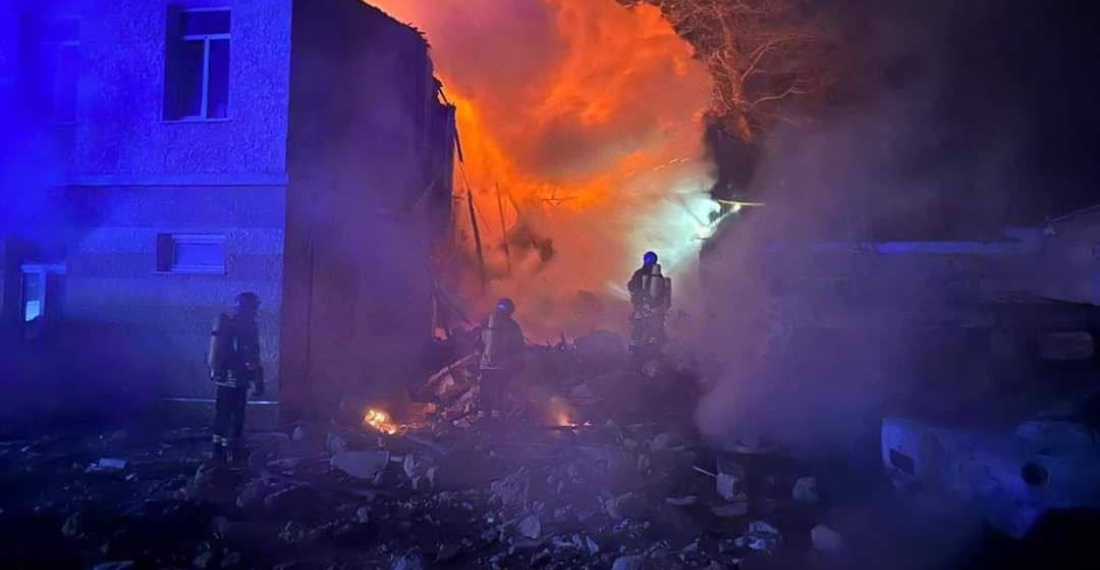Early in the morning of Wednesday (19 April), Russia launched a wave of drone strikes on the southern Odesa Oblast, with two drones striking a "public infrastructure facility", according to the Odesa Oblast Military administration.
According to the Ukrainian Air Force, Russia launched 12 Iranian-made Shahed "kamikaze" drones, of which ten were shot down. No casualties were reported after last night's attack, said the military administration.
Explosions were heard around 2am in the morning of Wednesday, with air raid sirens having been activated a few minutes prior.
The day before, on Tuesday (18 April), Russia launched an air strike on the city of Vovchansk in Kharkiv Oblast, damaging two residential buildings, farm buildings, and a market, and causing a large fire. Two people have also been killed in the strike, with a further two injured.
Russian targeting of residential areas continues
Russia's deliberate targeting of residential areas and civilian infrastructure continues.
Last Friday (14 April) at 6pm local time, at least 11 people were killed by Russian shelling of a residential building in the eastern city of Slovyansk, also wounding 21 others. Among the dead was a two-year-old child who died in an ambulance after being pulled from the rubble.
Governor Pavlo Kyrylenko said on that occasion that five houses and five blocks of flats were hit in the strike, while businesses and shops were also damaged in the blasts.
Zelensky visits front-line Avdiivka
Yesterday on Tuesday (18 April), the Ukrainian President Volodymyr Zelensky visited the front-line town of Avdiivka, in Donetsk Oblast, located only 10km north of the city of Donetsk, which has been occupied by Russia since 2014.
"I wish you nothing but victory – something that every Ukrainian desires and which holds great importance for all of us," Zelensky said. "I extend my wishes for good health to you and your loved ones and express sincere gratitude from every Ukrainian for the remarkable path that you tread each day."
Russian forces made significant gains around Avdiivka in March, with Ukrainian military spokesperson Oleksii Dmytrashkivskyi acknowledging on 20 March that it could become a "second Bakhmut", in reference to the eastern Ukrainian town that Russia has been trying capture for over nine months, but has thus far failed to completely capture the settlement despite suffering huge losses.
The front-line around Avdiivka has since stabilised, according to Ukrainian sources.






